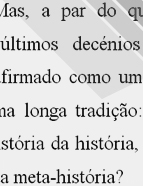

................................
The European commemorations of the bicentennial of the French Revolution (1989), Christopher Columbus's voyage (1992), and the Portuguese Discoveries (1986–2002), accompanied by major international exhibitions, scientific meetings, and publications of a highly varied nature, decisively contributed to reviving historical reflection on national memory, commemorative practices, and other ritualisations developed during that period. Shortly after Portugal and Spain joined the European Economic Community (1986), the role of nation-states in Europe was being redrawn in the wake of the fall of the Berlin Wall, the disintegration of the USSR, and the fragmentation of Yugoslavia. The viability of nation-states in a supposedly post-national era was being debated. Inevitably, the themes of national memory and oblivion also came into focus. Contributing to this discourse was the growing study of history and the memories associated with Nazism and Stalinism. Alongside the prominent influence of French historical culture in Portugal, the influence of Anglo-Saxon historiographies significantly expanded. This was still an underexplored area and required consideration of the numerous works undertaken, particularly from the 1960s onward s, by British and American scholars. These studies addressed not only the Portuguese colonial empire but also specific periods in the nation’s historical trajectory (such as Pombalism, the First Republic, and the Estado Novo). Additionally, the so-called New Economic History, emerging from the 1980s, inspired a re-examination of the issues surrounding Portuguese economic underdevelopment.
However, in the field of the history of history, it was only in the following decade that a third stage can be identified, marked by a significant broadening of themes and a methodological renewal in multiple directions. This period coincided with a felt need, on a broader historical level, to develop new syntheses. This imperative was reflected in the publication—or initiation of the publication—of three new general histories of Portugal, directed by Joel Serrão and Oliveira Marques, José Mattoso, and João Medina. Sectoral critical assessments were conducted, ranging from prehistoric archaeology to the early 20th century (La recherche en Histoire du Portugal, 1989). Interest in the relationships between history and ideology, concepts of history, the teaching of history across different levels of the educational system, the ritualisation of historical memory—with a particular focus on commemorations—journalism, and the institutions associated with historians, such as universities, academies, other scientific societies, and archives, expanded the scope for observing and understanding historical thought within a broader framework. A significant collective work, (L. R. Torgal, J. M. Amado Mendes, and F. Catroga, História da História em Portugal: séculos XIX e XX [History of History in Portugal: 19th and 20th centuries]) published in 1996, maintained a central focus on historical thought while closely linking it to all these fields and incorporating new research.
